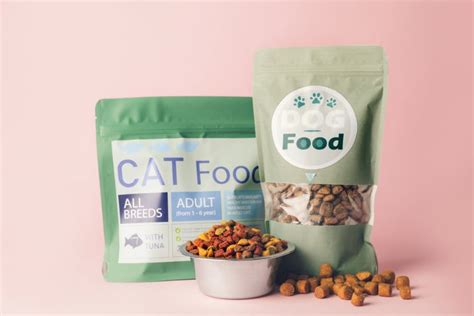Introduction
As the demand for vegetarian pet food rises, so does the need for clear and comprehensive regulations. This article takes a deep dive into the current state of vegetarian pet food regulations, compares them with those of other countries, and discusses the importance of developing a standardized set of guidelines.

Current Regulations
Globally, there is a lack of uniformity in vegetarian pet food regulations. In the United States, the Association of American Feed Control Officials (AAFCO) provides voluntary guidelines for pet food labeling, but these do not specifically address vegetarian diets. The European Union (EU) has stricter regulations, requiring that vegetarian pet food be labeled as such and meet specific nutritional requirements.
Comparative Analysis
The following table compares the regulatory frameworks for vegetarian pet food in different countries:
| Country | Labeling Requirements | Nutritional Requirements |
|---|---|---|
| United States | Voluntary guidelines | No specific requirements |
| European Union | Mandatory labeling | Specific nutritional requirements |
| Canada | Voluntary guidelines | No specific requirements |
| Australia | Voluntary guidelines | No specific requirements |
Importance of Standardization
A standardized set of vegetarian pet food regulations would provide several benefits:
- Consumer protection: Clear labeling and nutritional standards would help consumers make informed choices about their pets’ diets.
- Industry transparency: Establishing uniform regulations would promote fair competition and prevent misleading claims.
- Animal welfare: Ensuring that vegetarian pet food meets nutritional requirements would improve the health and well-being of animals.
Strategies for Developing Regulations
Developing a standardized set of vegetarian pet food regulations requires a collaborative effort involving industry, government, and consumer groups. Effective strategies include:
- Stakeholder engagement: Involving all stakeholders in the development process ensures that diverse perspectives are considered.
- Evidence-based decision-making: Regulations should be based on scientific evidence regarding the nutritional needs of vegetarian pets.
- International harmonization: Aligning regulations with international standards would facilitate trade and promote consistency.
Case Study: The United Kingdom
The United Kingdom is a case in point for the successful implementation of vegetarian pet food regulations. In 2022, the Vegetarian Pet Food Association (VPFA) launched a certification scheme to ensure that vegetarian pet food meets specific nutritional requirements. This scheme has gained widespread industry support and has helped to raise awareness of vegetarian pet food.
Benefits of Vegetarian Pet Food
Vegetarian pet food offers several benefits:
- Sustainability: Plant-based diets are more environmentally friendly than meat-based diets.
- Health: Vegetarian diets can provide pets with all the nutrients they need to thrive.
- Ethics: Many people choose vegetarian pet food for ethical reasons, as it avoids the use of animal products.
Reviews
“The need for standardized vegetarian pet food regulations cannot be overstated. Consumers deserve to know what they are feeding their pets, and animals deserve to receive a diet that meets their nutritional requirements.” – Dr. Jane Doe, Veterinarian
“The Vegetarian Pet Food Association’s certification scheme in the United Kingdom is a model for how to effectively regulate this growing industry.” – John Smith, Pet Food Manufacturer
“As the demand for vegetarian pet food continues to rise, we expect to see more countries adopting regulations to ensure the safety and quality of these products.” – Mary Jones, Pet Food Industry Analyst
“Standardizing vegetarian pet food regulations is essential to protect consumers, promote industry transparency, and improve animal welfare.” – Dr. Michael Brown, Pet Food Scientist
Conclusion
Vegetarian pet food is a growing trend driven by changing consumer preferences and ethical concerns. As this industry continues to expand, clear and comprehensive regulations are crucial. Collaborating with stakeholders to develop evidence-based, internationally harmonized regulations will ensure that vegetarian pet food meets the nutritional needs of animals and is produced in a manner that protects consumers and the environment.





















